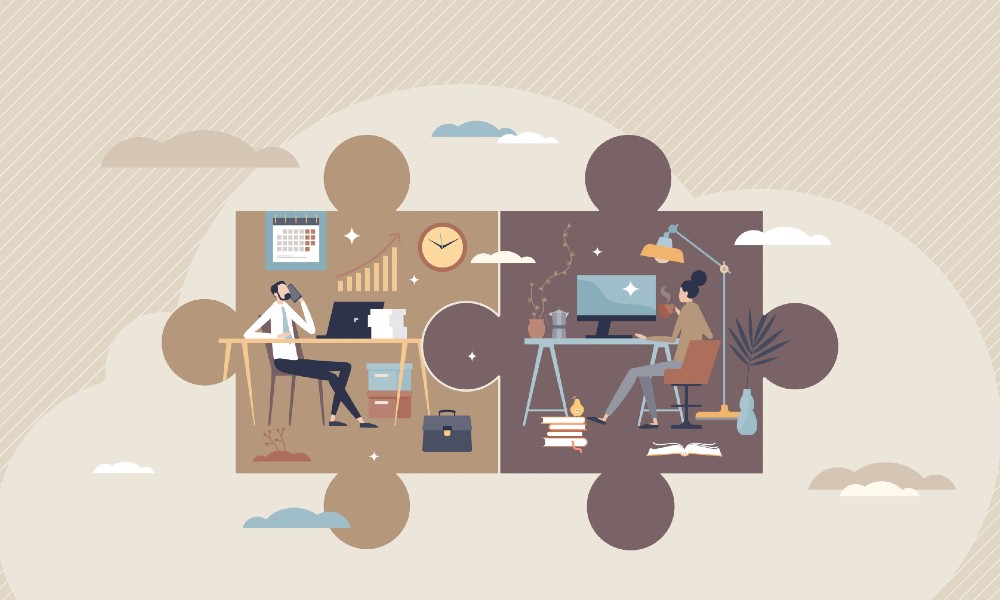
For most people today, the goal – and a means to a more productive work environment – is to avoid “death by a thousand PowerPoints,” formally known as too many in-person meetings. The good news is there is plenty of new technology allows you to collaborate remotely with people at the time of your choosing.
During a panel discussion, “Driving Collaboration and Production in Hybrid Workforces,” at Future of Work Expo 2022, attendees learned how what makes a successful hybrid work force.
John Arnold, principal at J. Arnold & Associates, led the discussion. Even though the airlines misplaced his luggage, Arnold maintained his usual command of the issues in his newly purchased attire.
Joining Arnold were four veterans of the telecommunications industry:
- Jay Bellisimo, COO at Vonage
- David Jodoin, President of Nynja
- Kristine Konrad, Senior North American Evangelist from Avaya
- Av Utukuri, CEO at Vizetto.
Bellisimo said to begin strengthening your hybrid workforce by zeroing in on the issues. What’s the problem? Where’s the value? Reimagining work means freeing people from performing administrative tasks, he said.
Efficiency and effectiveness need to work hand-in-hand, Konrad added. To get the real story, managers are approaching employees – instead of the other way around. “They’re asking, hey, what works for you?” Konrad said.
Konrad believes employees want to know who they’re working for these days. “It all depends on leadership,” Konrad said. “Who’s leading the company?”
Bellisimo agreed “Who’s corporate and who’s not? If you don’t have the culture, people don’t want to work for you.”
From an employer’s perspective, today, soft skills are every bit as important as technical knowledge, Konrad said. “It’s about being authentic,” she said.
Jodoin asked, “How do you connect?” His company offers communications software for influencers that includes community features, such as a lead board. “Its hard to validate references,” he said.
Utukuri noted why Zoom conferences are better than conference calls; in-person meetings are even better. “Eye contact,” he said. “It creates empathy.”
Jodoin touched on how things have changed, though, and explained that now, employees take the lead in creating culture in the workplace, rather than employers. “People want to know, how is this going to change my life?” he said.
“AI is permeating ever part of our daily lives whether we like it or not,” accorgint to Bellisimo, who added that technology is great for getting rid of the “menial stuff.”
“AI has its role,” Utkori agreed, “But, we need to connect with people.”
“We really need to re-think what productivity means,” Arnold said, also asking where the potholes are in terms of where tech is falling short and how AI can help.
“There needs to be an AI ethics group in every organization,” Jodoin answered, adding that it’s about our hierarchy of needs: food, housing, family. “Technology doesn’t satisfy our base cravings,” he said.
Edited by
Erik Linask